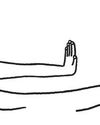
In June, 2018, the political commentator Fareed Zakaria found himself in the Campo de' Fiori, in the center of Rome, with Steve Bannon, who was then President Trump's chief strategist. Bannon-whom Zakaria describes as a "volatile personality" and as a conduit for the international resurgence of nativist sentiment-had come to Italy to help convince two populist parties, one on the left and the other on the right, that their interests were aligned. He drew Zakaria's attention to a monument to Giordano Bruno, the sixteenth-century poet and cosmologist who held Copernican views about the universe and was burned at the stake for heresy. Where Galileo sold out and recanted, Bannon explained, Bruno was a real hero.
Zakaria was surprised by Bannon's admiration for Bruno, who is widely regarded as a progressive, protoEnlightenment figure. But Bannon was less interested in the substance of Bruno's opinions than in his uncompromising defiance. It was Bannon's conviction, Zakaria writes, "that in times of turmoil, take-no-prisoners radicalism is the only option." In his new book, "Age of Revolutions: Progress and Backlash from 1600 to the Present" (Norton), Zakaria concedes the turmoil but resists the radicalism. Everywhere you look, he says, you can see dramatic change.
The rules-based international order has been destabilized. Traditional left-right divides have been transfigured. The trade-friendly economic consensus of the post-Communist era has yielded to protectionism and autarky. Given that we may be living through "one of the most revolutionary ages in history," he thinks that lessons can be drawn from previous revolutionary ages, especially those that involved actual revolutions.
This story is from the April 01, 2024 edition of The New Yorker.
Start your 7-day Magzter GOLD free trial to access thousands of curated premium stories, and 9,000+ magazines and newspapers.
Already a subscriber ? Sign In
This story is from the April 01, 2024 edition of The New Yorker.
Start your 7-day Magzter GOLD free trial to access thousands of curated premium stories, and 9,000+ magazines and newspapers.
Already a subscriber? Sign In

BADDIE ISSUES
\"Wicked\" and \"Gladiator II.\"

LET'S MAKE A DEAL
\"Death Becomes Her\" and \"Burnout Paradise.\"

ANTI HEROES
\"The Franchise,\" on HBO.

FELLOW-TRAVELLERS
The surprisingly sunny origins of the Frankfurt School.

NOW YOU SEE ME
John Singer Sargent's strange, slippery portraits of an art dealer's family.

PARIS FRIEND - SHUANG XUETAO
Xiaoguo had a terror of thirst, so he kept a glass of water on the table beside his hospital bed. As soon as it was empty, he asked me to refill it. I wanted to warn him that this was unhealthy - guzzling water all night long puts pressure on the kidneys, and pissing that much couldn't be good for his injury. He was tall, though, so I decided his insides could probably cope.

WILD SIDE
Is Lake Tahoe's bear boom getting out of hand?

GETTING A GRIP
Robots learn to use their hands.

WITHHOLDING SEX FROM MY WIFE
In the wake of [the] election, progressive women, who are outraged over Donald Trump's victory at the ballot box, have taken to social media with public, vengeful vows of chastity. - The Free Press.

DEADLINE EXTENSION
Old age, reborn.